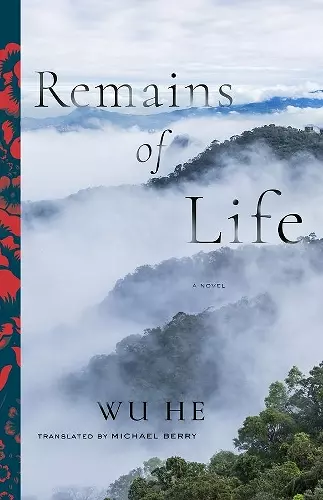Remains of Life
A Novel
Wu Wu He author Michael Berry translator
Format:Paperback
Publisher:Columbia University Press
Published:12th May '17
Currently unavailable, and unfortunately no date known when it will be back

In 1930, in the mountains of Taiwan, the Atayal tribe rose up against the Japanese colonial regime. The Japanese response brought the tribe to the brink of genocide. Wu He investigates the atrocity in this milestone of Chinese experimental literature. Shifting among observations about the people the author meets, philosophical musings, and fantastical leaps of imagination, Remains of Life is a powerful literary reckoning with one of the darkest chapters in Taiwan's colonial history.
On October 27, 1930, during a sports meet at Musha Elementary School on an aboriginal reservation in the mountains of Taiwan, a bloody uprising occurred unlike anything Japan had experienced in its colonial history. Before noon, the Atayal tribe had slain one hundred and thirty-four Japanese in a headhunting ritual. The Japanese responded with a militia of three thousand, heavy artillery, airplanes, and internationally banned poisonous gas, bringing the tribe to the brink of genocide. Nearly seventy years later, Chen Guocheng, a writer known as Wu He, or "Dancing Crane," investigated the Musha Incident to search for any survivors and their descendants. Remains of Life, a milestone of Chinese experimental literature, is a fictionalized account of the writer's experiences among the people who live their lives in the aftermath of this history. Written in a stream-of-consciousness style, it contains no paragraph breaks and only a handful of sentences. Shifting among observations about the people the author meets, philosophical musings, and fantastical leaps of imagination, Remains of Life is a powerful literary reckoning with one of the darkest chapters in Taiwan's colonial history.
Remains of Life is a novel of the first order. Welding experimental language and penetrating insights into history and memory, it transcends commonly used categories such as literary movements and schools. Remains of Life is not only a landmark in modern Chinese literature but truly an epochal accomplishment. -- Michelle Yeh, University of California, Davis After spending ten years living in seclusion, Wu He began publishing a series of short stories, novellas, and novels that culminated in the publication of Remains of Life. The novel stands as a singular statement, at once profound and powerful, that could only come from the brilliant literary imagination of Wu He. -- Chu T'ien-wen, author of Notes of a Desolate Man Wu He is one of the most innovative Chinese-language writers today, and Michael Berry is one of the best translators of Chinese. I cannot think of a modern or contemporary work of literature in the Chinese language that is comparable to Remains of Life. It deserves a place alongside great literary works dealing with genocide such as Austerlitz by W. G. Sebald. -- Lingchei Letty Chen, Washington University in St. Louis A brilliant but immensely challenging work, of great interest to students of contemporary Asian fiction-and of the literature of atrocity and remembrance as well. Kirkus Reviews (starred review)
- Commended for Patrick D. Hanan Book Prize for Translation, Association for Asian Studies 2020
- Long-listed for Three Percent, Best Translated Book Award in Fiction 2018
ISBN: 9780231166010
Dimensions: unknown
Weight: unknown
352 pages